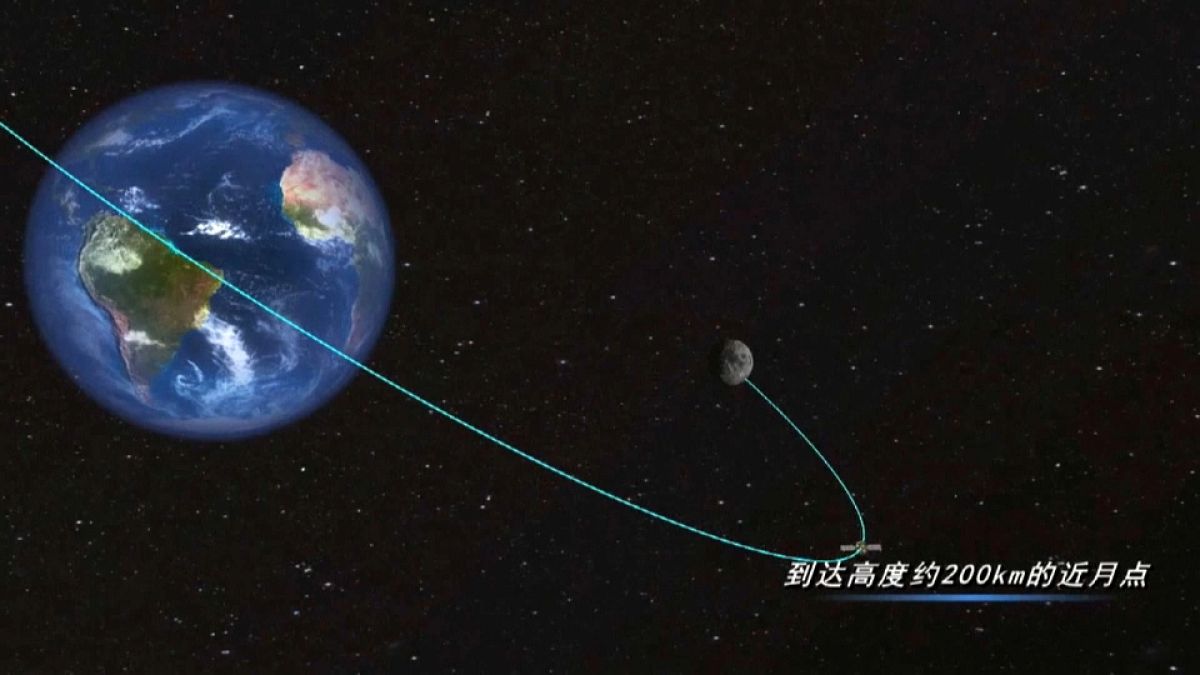A lunar expert says any rocks returned from the moon by China's Chang'e 5 lunar probe could answer the unexplored 'enigma' of the moon's history.
A lunar expert says any rocks returned from the moon by China's Chang'e 5 lunar probe could answer the unexplored 'enigma' of the moon's history. The probe is on course to reach the moon by the end of the week.
It's Beijing's first attempt at retrieving moon rocks - and the world's first - since the 1970s.
The primary aim of the mission is to drill two metres below the lunar surface and extract around two kilogrammes of rock and debris -- to be brought back to Earth.
Professor Clive Neal, Lunar Geologist at the University of Notre Dame in Indiana, told Euronews the new mission showed how far Chinese technological capability had come.
"The Chinese moon programme has really made great strides, landing on the far side with Chang'e 4 and now this capsule to return samples to earth for the first time in 44 years since the Soviets did it in 1976, it's further proof of their evolving capabilites and an exciting time for lunar science.
"The Americans returned 382 kilogrammes of moon rocks with the six Apollo missions and the vulcanism was 3.1 to 3.8 billion years old.
"These moon rocks where they're going to land are supposedly younger lava flows that we have no sample of and the moon is a little body. Its heat engine should have died out a long time ago and it hasn't, so it remains an enigma.
"These are new samples from a new period of time in the moon's history that we don't to have any record of in the sample collection, so these are really new samples.
Professor Neal said there were still significant obstacles before the mission could be completed, in terms of things that could go wrong:
"There are catastrophic ones such as falure to land and failure to relaunch; there's also failure to rendezvous with the orbiter that's going to bring the samples home.
"But China has done a very stepwise approach to robotic exploration and we see the care that they've taken in developing their systems with the Chang'e 4 rover still going strong on the far side of the moon."
